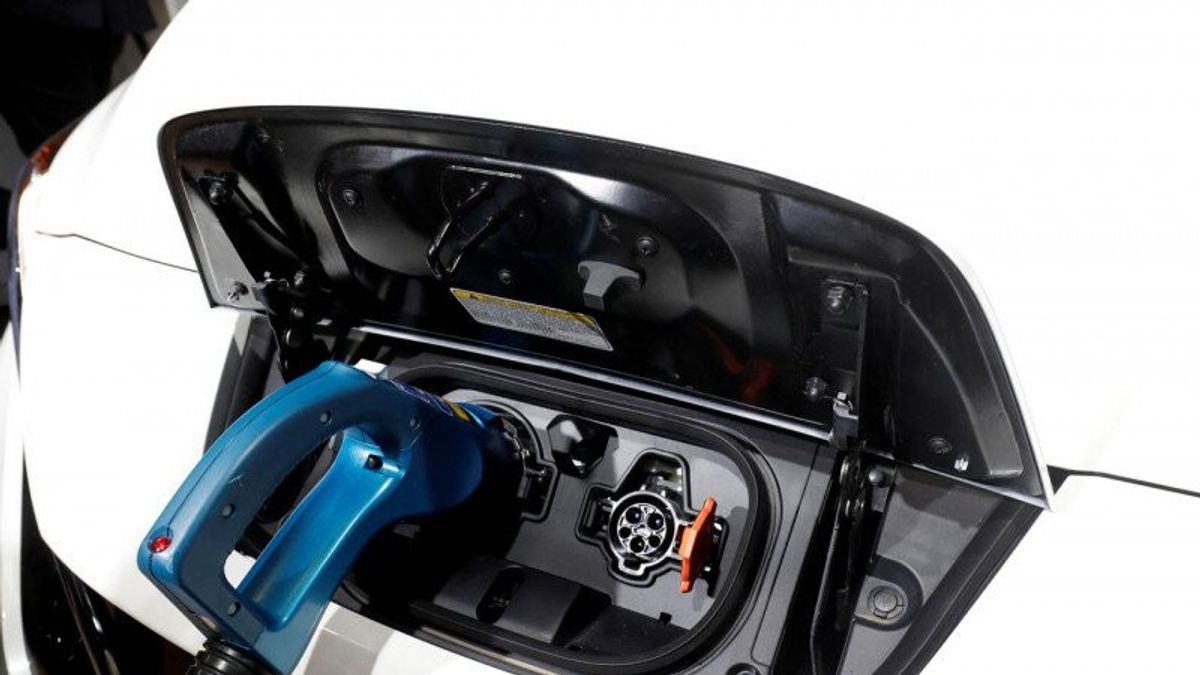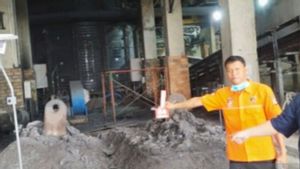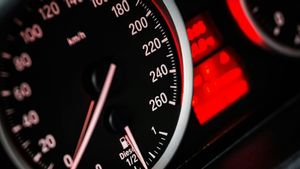JAKARTA - The Ministry of Industry has begun developing electric-based vehicles to support efforts to reduce carbon emissions. This includes providing new business principles for the economy and strengthening artificial intelligent (AI) technology as well as robotics that support national industrial productivity in the future.
The Director General of Metal, Machinery, Transportation Equipment and Electronics (ILMATE) of the Ministry of Industry, Taufiek Bawazier revealed that the government continues to spur the application of technology and increase investment in the national automotive sector, including accelerating the development of electric vehicles with two, three and four wheels or more. battery-based electricity and mild hybrid and strong hybrid.
"Currently, we have completed the regulations regarding the road map for electric battery-based electric vehicles, which is a derivative of Presidential Decree 55/2019," said Taufiek Bawazier, Monday, November 9.
Taufiek explained that the potential for developing electric vehicles also opens new business prospects, such as the development of an Internal Combustion Engine (ICE) type vehicle, which currently still contributes up to 99 percent of the national automotive industry's GDP.
"In 2025, the target of 20 percent of national automotive production is electric vehicles such as hybrids, plug in hybrids, and battery-based EV cars," he said.
According to Taufiek, the development of battery-based electric vehicles is in line with the increasing interest in investing in electric batteries and electric vehicles in Indonesia. This is because the raw materials for nickel, cobalt and manganese are quite abundant in Indonesia, which can become the backbone in the development of electric vehicles.
In addition, the deepening of the structure of the electric vehicle industry has required the value of the domestic content level (TKDN) until 2030 with the Incompletely Knock Down (IKD) or Completely Knock Down (CKD) program which is encouraged to obtain maximum added value in the country.
"Gradually we have mastered the electric battery, and the production of electric vehicles in the country," he added.
Plt. Director of the Maritime Industry, Transportation Equipment and Defense Equipment (IMATAP) of the Ministry of Industry's ILMATE General, Restu Yuni Widayati said that the battery-based electric motor vehicle industry can be started from the electric motorcycle industry.
This is supported by the relatively low initial investment value with minimal labor, and the relatively large market share of electric motorcycle products in Indonesia because electric motorcycle products are able to compete with conventional motorcycle products in terms of "total cost of ownership".

Currently there are 15 electric motorcycle assembly industries that have obtained a Vehicle Identification Number (NIK) from the Ministry of Industry as one of the requirements for a company to be able to produce motorized vehicles, with a production capacity of electric motorbikes of 877 thousand units per year and absorbing a workforce of 1,429 people. .
"It's a little different from the four-wheeled industry or more, which requires a fairly large initial investment and quite a lot of workforce, so that until now only PT Mobil Anak Bangsa (MAB) has a trolleybus production facility in Indonesia with a production capacity of 100 units per month. or 1,200 units per year, "he said.
Restu added that the development of electric vehicles in Indonesia, apart from supporting the government's target to reduce greenhouse gas (GHG) emissions by 29 percent by 2030, will also be able to attract investment in the component and other industrial sectors.
The English, Chinese, Japanese, Arabic, and French versions are automatically generated by the AI. So there may still be inaccuracies in translating, please always see Indonesian as our main language. (system supported by DigitalSiber.id)













